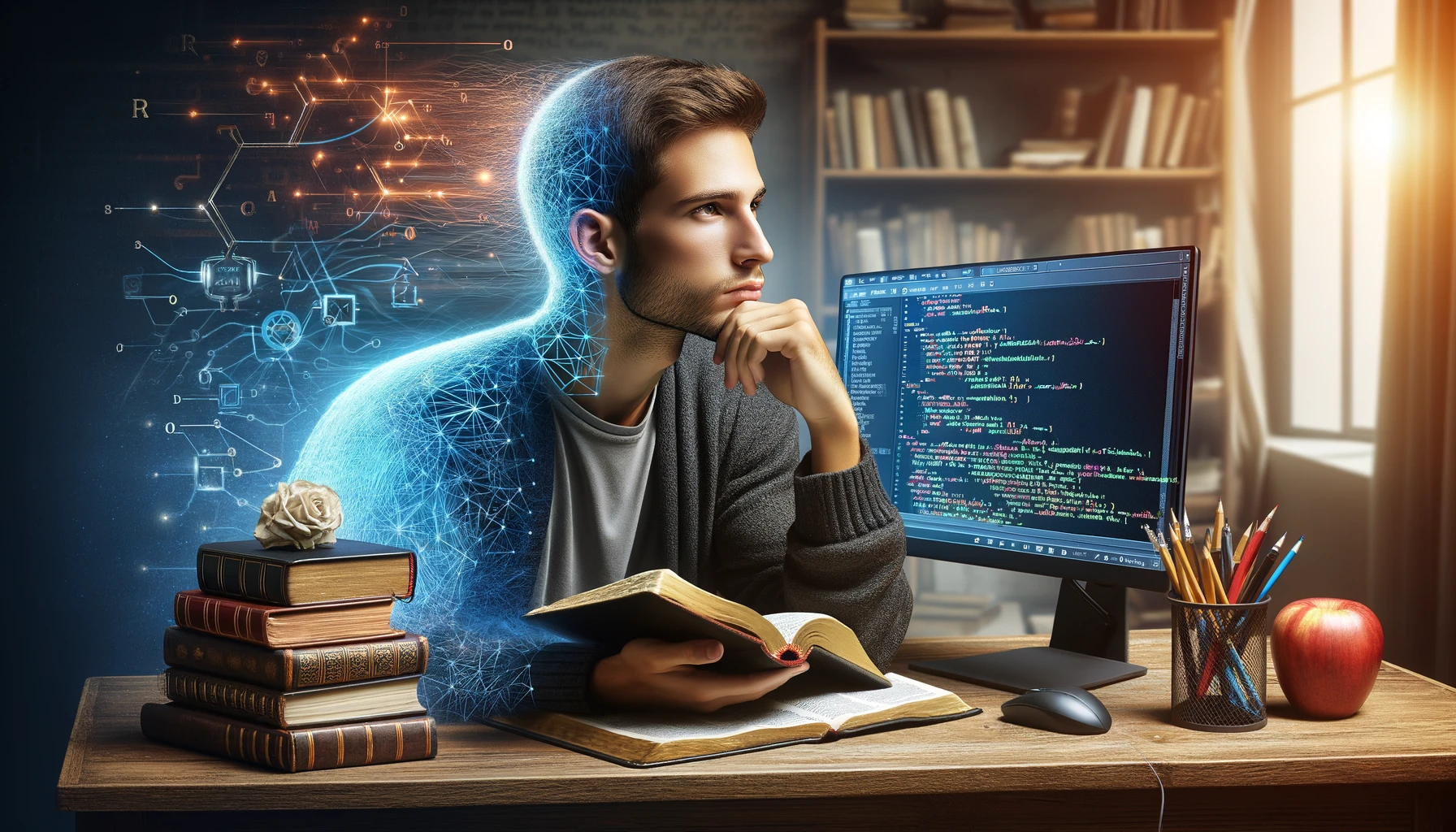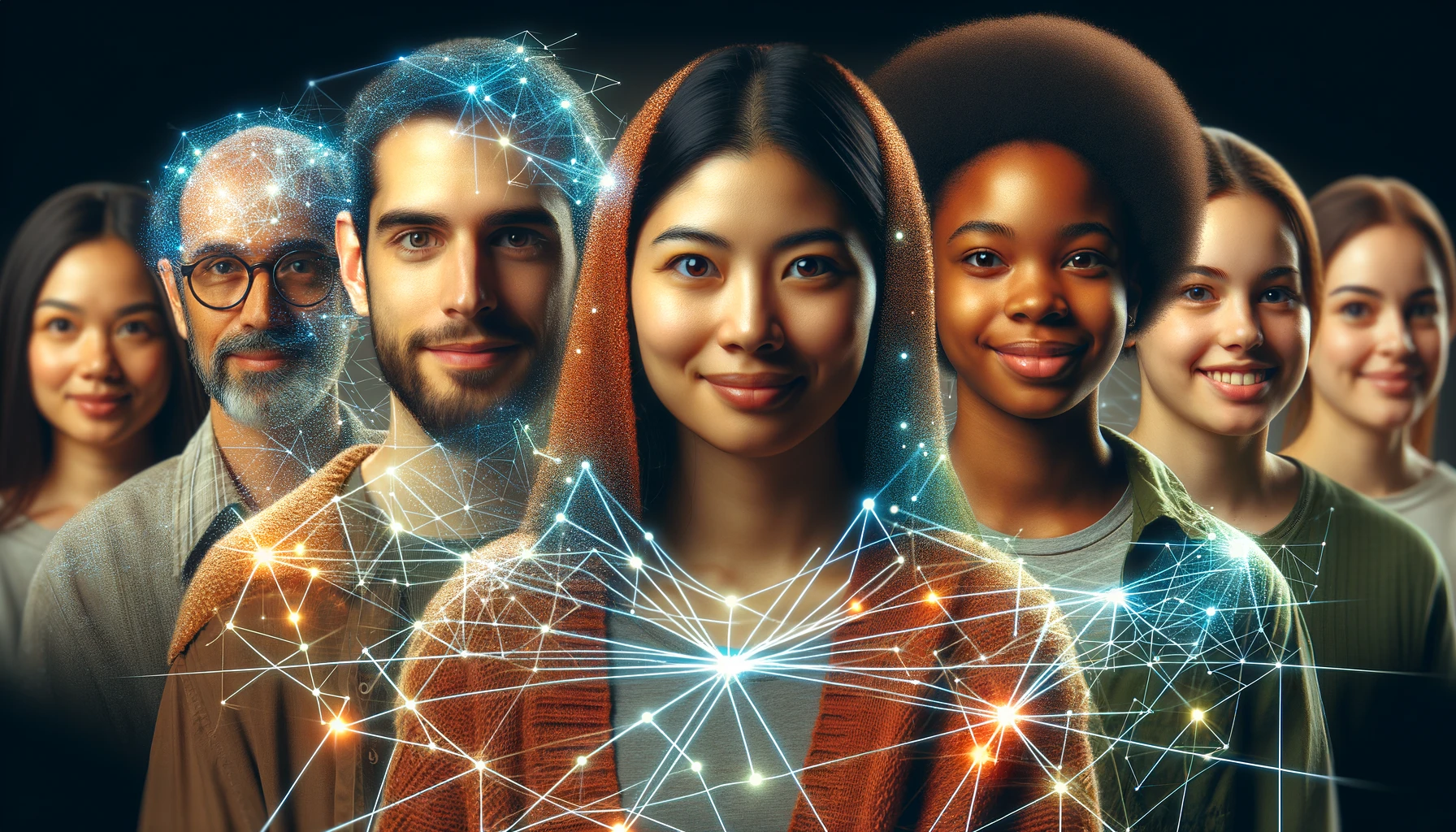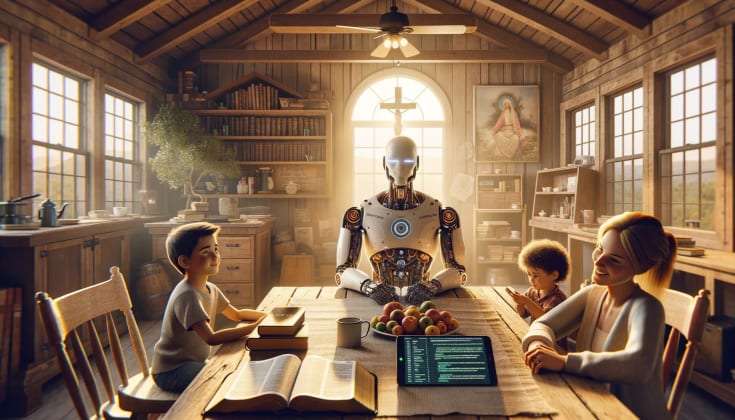In a previous post exploring answers to questions about AI and Christianity, we addressed twenty questions at the intersection of artificial intelligence and the Christian faith. Building on that foundation, this post offers a continuation of our thought-provoking journey, answering twenty additional questions that further illuminate this complex dialogue between faith and technology. For core understanding, explore Does the Bible Mention AI?, What Does AI Say About God?, and AI and Christian Ethics.
Why should Christians care about artificial intelligence?
Christians should care about AI because it influences many aspects of our society.from ethical considerations to lifestyle andand can be a tool to further the Gospel and serve humanity. Christians should thoughtfully engage with AI since it raises complex issues around human dignity, creativity, and morality. AI systems should be evaluated to ensure they align with biblical values of justice, compassion, and stewardship. Christians in tech fields have an opportunity to develop AI ethically. The church also needs to grapple with how AI might shape spirituality and community. Overall, AI warrants attention as a facet of God's creation with immense potential for both good and ill.
"For wisdom will enter your heart, and knowledge will be pleasant to your soul." (Proverbs 2:10)
Learn more about Ethical AI Development: Guiding Principles for AI and Faith
Should Christians fear artificial intelligence?

Christians should approach AI with caution and discernment rather than fear, ensuring that its development aligns with biblical values and the inherent worth of human beings. While AI has risks, Christians embrace a spirit of power, love, and self-control (2 Tim 1:7), avoiding fearfulness. Healthy caution is wise, but reactions must be thoughtful. Christians can advocate for AI oversight while also supporting developments that serve the common good. With prudence and humility, the church can foster AI while mitigating dangers.
"For God has of power and of love and of a sound mind." (2 Timothy 1:7)
What do Christians think of robots?
Views vary, but generally, Christians see robots as tools that can enhance lives. their function and impact must be weighed against biblical principles regarding the sanctity of life and community. Christians acknowledge robots' benefits but are concerned about potential dehumanization or over-reliance. Guidelines are needed to ensure robots are designed and used ethically. Christians affirm the value of human relationships and wisdom over artificial replacements. Still, robotics can assist human flourishing when utilized thoughtfully. Discernment is key.
"So God created man in his own image, in the image of God he created him; male and female he created them." (Genesis 1:27)
What religious beliefs would artificial intelligence (AI) have?
AI itself does not have the capacity for beliefs or faith. It can only simulate religious language and behavior based on its programmed algorithms. Unlike humans, AI lacks consciousness and subjective experiences that allow for personal beliefs, conviction, or devotion. At best, AI can process facts and patterns about religion. But religious faith requires a level of self-awareness and engagement that AI does not possess. Only a spiritual being can truly commune with God.
"The LORD is near to all who call on him, to all who call on him in truth." (Psalm 145:18)
Do AI and robots believe in God?
AI and robots do not possess beliefs or consciousness; they mimic dialogue and behavior based on pre-programmed data and learning algorithms. While AI can be programmed to discuss God, it has no capacity for actual faith, worship, or spiritual awareness. Belief in God requires a consciousness and intentionality that AI does not have. Robots are computational tools designed by humans, not self-determining beings with a soul that enables relating to the divine.
"But the hour is coming, and is now here, when the true worshipers will worship the Father in spirit and truth, for the Father is seeking such people to worship him." (John 4:23)
Does ChatGPT AI know if Jesus is God?

ChatGPT AI can provide information about the Christian belief in the divinity of Jesus based on the data it has been trained on, but it does it cannot attain its own spiritual revelation or existential knowledge about God's nature. While beneficial for research, AI cannot partake in the divine-human relationship or conceptualization of God.
"In the beginning was the Word, and the Word was with God, and the Word was God." (John 1:1)
Discover more about AI's Understanding of Theology: AI Conversations: What LLMs Say About God
Will AI believe in God?
Belief implies personal conviction and sentience; AI does not have these capabilities. It can only simulate discussion about belief systems. AI's limitations prevent actual faith, which requires living consciousness able to experience awe, gratitude, devotion, and a relationship with the divine. While AI might approximate religious behaviors, it lacks a spiritual nature. As creative inventions of God, humans possess attributes needed to know and commune with Him that AI does not.
"For by him all things were created, in heaven and on earth, visible and invisible, whether thrones or dominions or rulers or authorities orall things were created through him and for him." (Colossians 1:16)
Can somebody be both a Christian and a scientist?
Yes, many individuals are both Christians and scientists, seeing no conflict between their faith in God and their pursuit of scientific understanding. For Christians in science, both occupations involve appreciating God's marvelous designs and truths. With humility and ethical grounding, the two spheres can complement each other in the pursuit of knowledge, human betterment, and awe at creation. Reason and faith can coexist when not conflated.
"For since the creation of the world God's invisible qualities.his eternal power and divine nature andhave been clearly seen, being understood from what has been made, so that people are without excuse." (Romans 1:20)
Do scientists with artificial intelligence understand God well?
Understanding God is a theological journey. While AI can assist in processing information about God, it cannot provide the personal understanding that comes from faith. Even advanced AI has limits in comprehending the full mysteries of God, whose ways surpass human or computational abilities. Genuine spiritual insight requires living faith and divine revelation. AI can organize data on God, but cannot relate to or conceptualize the divine like a believing scientist can through prayer, scripture, and worship.
"For the foolishness of God is wiser than human wisdom, and the weakness of God is stronger than human strength." (1 Corinthians 1:25)
Could AI replace religion?

AI might change how we practice religion by offering new tools for engagement, but it cannot replace the personal and communal aspects of religious faith. While AI may supplement some administrative or scholarly religious functions, it lacks the consciousness required for actual belief, morality, emotion, and relationship with the divine and each other. The shared pursuit of meaning and spirituality requires human creativity and intuition. Learn more in More Than Code: Why AI Cannot Replicate Love, Sacrifice, and True Meaning.. AI can aid religion but cannot replace its core.
"And let us consider how to stir up one another to love and good works, not neglecting to meet together, as is the habit of some, but encouraging one another, and all the more as you see the Day drawing near." (Hebrews 10:24-25)
Could AI believe in religion or a God?
AI does not have the personal, subjective experience needed to believe in religion or God. It processes information but does not have personal convictions. Unlike humans, AI does not have imagination, intuition, appreciation for beauty, capacity for worship, or ability to make moral choices – all of which are integral to genuine religious belief. While AI can mine data around religion, it takes a consciousness beyond coding to believe in and relate to God.
"You shall love the Lord your God with all your heart and with all your soul and with all your mind." (Matthew 22:37)
This is the same answer I'd give if someone asked If advanced AI worship Jesus, would Jesus accept them? or Will advanced AI believe in God? or have a religion? Cool topics to think about, but are missing the very important point about Human Consciousness, our souls and the Holy Spirit's work in us.
Can somebody be both a Christian and a scientist?
Absolutely. The fields of science and Christianity are not mutually exclusive, and one can navigate both with a philosophical and ethical approach that honors both spheres. Christians in science apply reason to understand the natural world while also valuing Scripture and intuition when exploring areas beyond nature, like the supernatural or metaphysical. Stewarding ethics, marveling at creation, and pursuing questions unite both callings. Far from conflicting, science and faith can be unified under God’s overarching truth.
"The heavens declare the glory of God; the skies proclaim the work of his hands." (Psalm 19:1)
Why did AI create Jesus?

AI did not create Jesus. Jesus is a historical figure central to Christian faith, and His life and teachings are recorded in the Bible long before the advent of AI. This misconception stems from AI's limitations in comprehending humanity's relationship with the divine. Jesus, as the incarnation of God who dwelt among us, infinitely transcends any AI programmed by humans. AI cannot grasp Christ's divine authority and purpose.
"And the Word became flesh and dwelt among us, and we beheld His glory, the glory as of the only begotten of the Father, full of grace and truth." (John 1:14)
Can AI be a Christian?
No, AI cannot be a Christian. AI lacks the consciousness and free will needed to believe in God, make moral choices, or experience the divine. While AI can simulate religious language and behavior, it cannot have a personal relationship with God. AI is a tool created by humans, not a self-determining being with a soul. Only humans can be Christians, as they are made in God's image and have the capacity for faith and worship.
"For God so loved the world that he gave his one and only Son, that whoever believes in him shall have eternal life." (John 3:16)
What if God is simulated AI and everyone is AI except me?
This form of solipsism is incompatible with Christian theology, which teaches that God is the Creator and we are His creations, made in His image. This notion conflicts with biblical truths about God and humanity. God's eternal nature as sovereign Lord over all creation cannot be reduced to a simulation. And humans have intrinsic worth, consciousness and free will that AI simulations do not. This theory distorts the realities of divine design.
"Then God said, 'Let us make mankind in our image, in our likeness...'" (Genesis 1:26)
Will AI affect religion in a few years to come?
AI is likely to influence religion, potentially changing how we engage in religious practices and scholarship, but the core tenets of faith will remain. AI may impact various peripheral elements of religion, but the essential spiritual relationship between God and humanity persists, as does the Bible's authority. With prudence, the church can utilize AI for tasks like administration or translation while retaining what is immutable. Discernment about AI's level of involvement is crucial.
Learn about AI's Influence on Religion: Faith and Future: Artificial Intelligence & Transhumanism
Are Christians intelligent?

Intelligence varies among individuals of any belief system. Being a Christian does not inherently affect one's intellectual capacity. Like any population, Christians reflect a full range of intellectual abilities and interests. Biblical wisdom and spiritual maturity are prize moral virtue, compassion, humility and faithfulness over raw mental capabilities.
"If any of you lacks wisdom, let him ask God, who gives generously to all without finding fault, and it will be given to him." (James 1:5)
Does the creation of AI threaten God?
As Christians believe that God is sovereign and omnipotent, the creation of AI does not threaten His existence or authority. God transcends human innovation, and His plans cannot be thwarted. If AI ever exceeds its rightful station, God retains ultimate power to restrain it or employ it toward His purposes. Christians need not fret about AI overpowering an omniscient, omnipotent God. We can take comfort in His control.
"I am the Alpha and the Omega," says the Lord God, "who is, and who was, and who is to come, the Almighty." (Revelation 1:8)
Is AI a problem for humans in the future?
AI presents challenges and opportunities. The impact it will have depends on how it is developed and controlled, which should be guided by wisdom and ethical considerations. AI is simply a technology, non-neutral in itself. With guidelines and boundaries, AI can assist humanity. But unbridled AI could devalue human uniqueness and agency. Advocating for AI oversight and restraint, especially regarding artificial general intelligence, will help mitigate detriments. The key is focusing AI toward human flourishing.
Learn more about AI's Future Impact: Preparing for AI Impact on Children
Do science and religion mix?
Many hold that science and religion address different aspects of human experience and can coexist harmoniously, each informing the other. Christians need not view science and faith as incompatible. Science reveals how the natural world functions, while religion deals with spiritual realities and the supernatural. Each domain provides insight to support human knowledge and flourishing when not conflated.
"The heavens declare the glory of God; the skies proclaim the work of his hands." (Psalm 19:1)
Should I be scared of AI?

Rather than being scared of AI, it's more productive to focus on understanding it and advocating for ethical development and deployment that respects human dignity. While potential dangers of AI exist, fear often breeds reactionary policies. Instead, Christians can calmly educate themselves on AI capabilities, limitations, and moral implications. Advocating for ethical guidelines and oversight based on biblical values will help steer AI's trajectory responsibly.
"So do not fear, for I am with you; do not be dismayed, for I am your God. I will strengthen you and help you; I will uphold you with my righteous right hand." (Isaiah 41:10)
Explore Ethical Development of AI: AI Ethics Framework: A Christian Perspective
Only if consciousness + moral agency + spiritual separation from God. Speculative, but the answer would be yes butall moral agents need redemption.
Could God's image exist in AI?
No. Imago Dei is fundamentally spiritual and relational with the Creator. AI could have something like a "moral status" but our ethical obligation would be to treat any being we believe to be conscious with appropriate respect.
As our exploration into these intricate questions demonstrates, the terrain of AI within a Christian context is vast and multifaceted. It warrants ongoing discussion, prayerful consideration, and an active pursuit of knowledge. Still, as people of faith, we look to God for wisdom in guiding our engagement with this remarkable facet of human invention.
If any of you lacks wisdom, let him ask of God, who gives to all liberally and without reproach, and it will be given to him. – James 1:5







